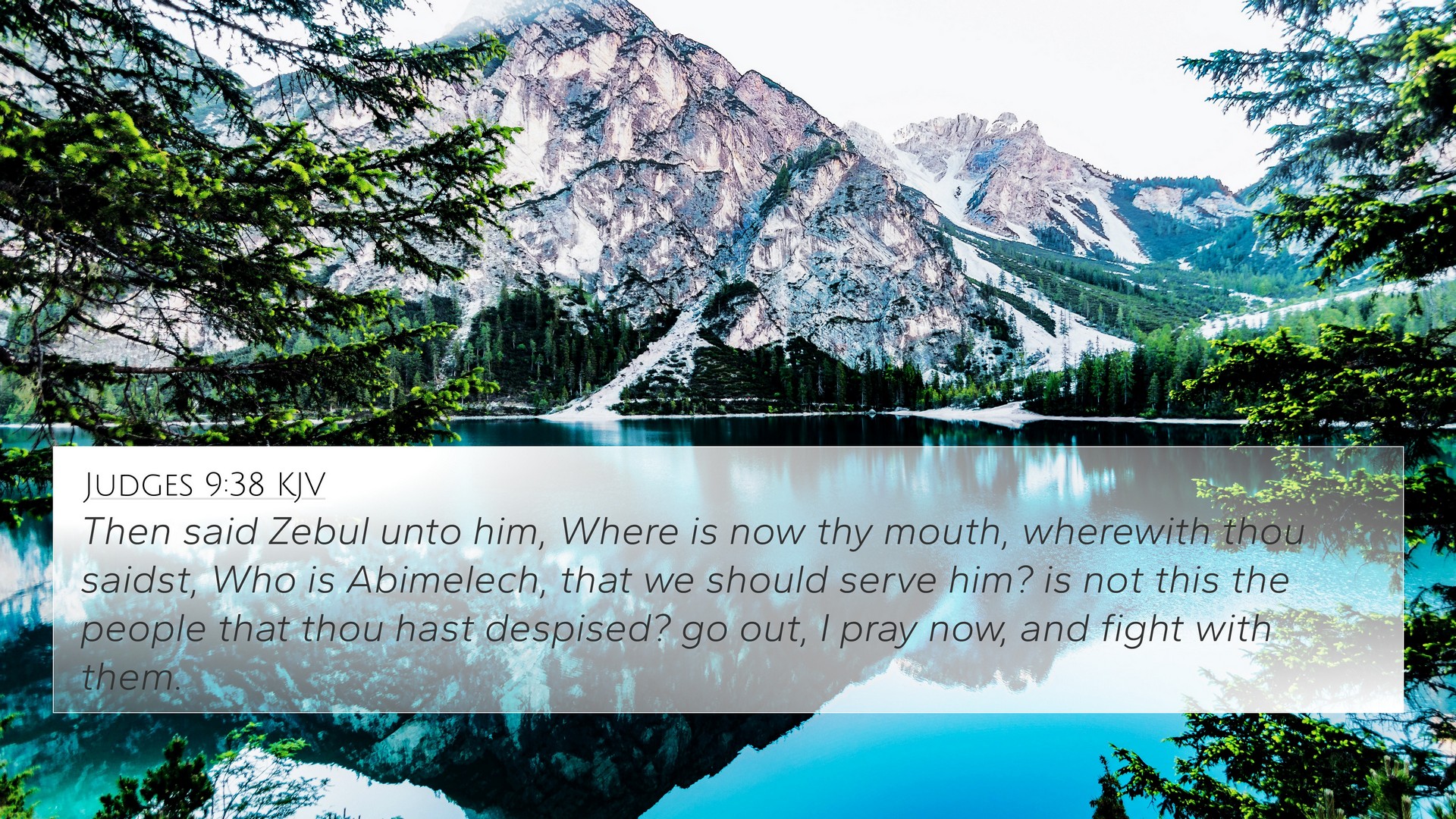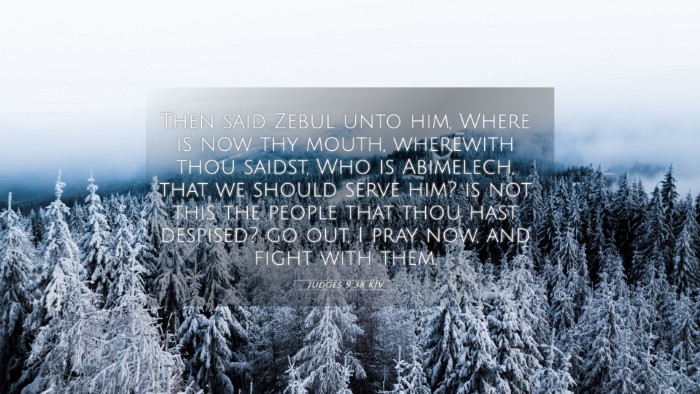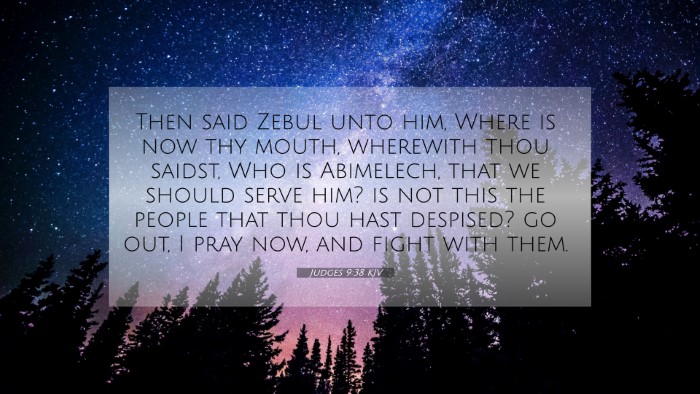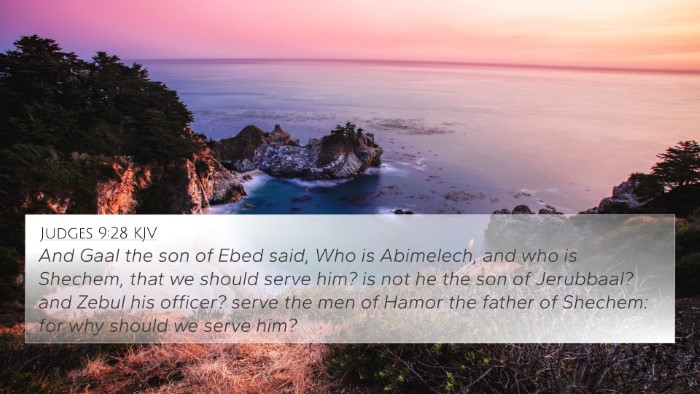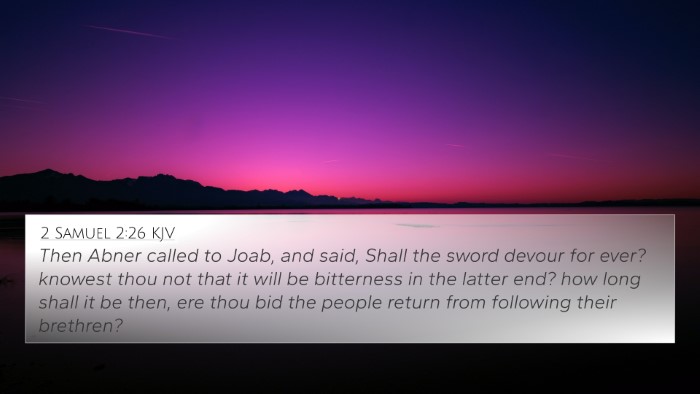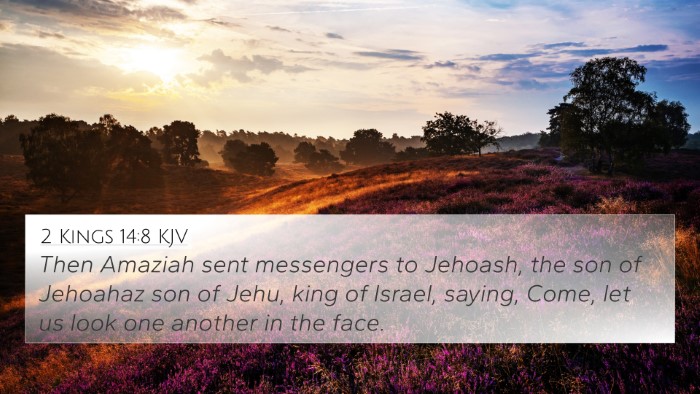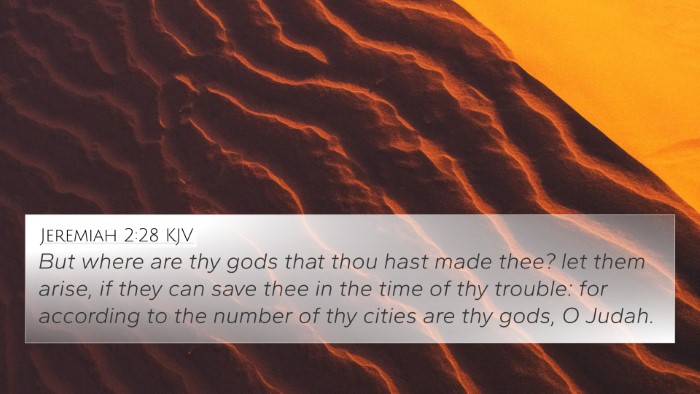Understanding Judges 9:38
Judges 9:38 reads: "Then said Zebul unto him, Now therefore up, and fight against them." This verse appears in the context of Abimelech's conflict with the city of Shechem and highlights themes of leadership, rebellion, and the consequences of unwise decisions.
Verse Interpretation
The statement made by Zebul in Judges 9:38 refers to the urgency of action in the midst of battle. Here, Zebul is addressing Abimelech, essentially urging him to confront his enemies. The verses leading up to this suggest a build-up of tension and rebellion among the people, following the contentious rise of Abimelech as ruler.
Commentary Insights
The following insights are drawn from notable public domain commentaries:
- Matthew Henry: Henry emphasizes the importance of discernment in leadership. Zebul's call to arms represents a moment of truth where nefarious plans can either be challenged or allowed to fester. He draws parallels to moral leadership and the consequences of failing to act decisively against wrongdoing.
- Albert Barnes: Barnes highlights the strategic nature of Zebul’s words, noting that it reflects the dynamics of power and influence in ancient Israel. He suggests that Zebul's encouragement carries implications about loyalty and the fickleness of public support during times of crisis.
- Adam Clarke: Clarke delves into the motivations behind Zebul's command, suggesting that it reveals the desperation of Abimelech's position. He links this moment to the larger narrative of Israel's cycles of disobedience and deliverance, illustrating how power struggles can lead to further conflict and instability.
Bible Verse Cross-References
To better understand Judges 9:38, the following cross-references are pertinent:
- Judges 8:23: "But Gideon said unto them, I will not rule over you, neither shall my son rule over you: the LORD shall rule over you." This verse reflects the core issue of leadership in Israel and contrasts with Abimelech's rise.
- 1 Samuel 8:5: "And said unto him, Behold, thou art old, and thy sons walk not in thy ways: now make us a king to judge us like all the nations." This verse highlights Israel’s desire for earthly leadership which ultimately leads to turmoil.
- 2 Samuel 20:1: "And there happened to be there a man of Belial, whose name was Sheba, the son of Bichri, a Benjamite: and he blew a trumpet, and said, We have no part in David, neither have we inheritance in the son of Jesse: every man to his tents, O Israel!" This illustrates the consequences of division within the nation.
- Micah 3:5: "Thus saith the LORD concerning the prophets that make my people err, that bite with their teeth, and cry, Peace; and he that putteth not into their mouths, they even prepare war against him." This verse reflects the theme of false leadership and its dangers.
- Galatians 5:15: "But if ye bite and devour one another, take heed that ye be not consumed one of another." The actions of the people in Judges can be paralleled with divisions spoken of in the New Testament.
- Proverbs 24:21-22: "My son, fear thou the LORD and the king: and meddle not with them that are given to change: For their calamity shall rise suddenly; and who knoweth the ruin of them both?" This reflects the perils of rebellion and the calls to remain steadfast in leadership.
- Romans 13:1: "Let every soul be subject unto the higher powers. For there is no power but of God: the powers that be are ordained of God." This speaks to the divine order of authority, contrasting the chaos seen in the Book of Judges.
Thematic Bible Verse Connections
The themes of leadership and conflict present in Judges 9:38 resonate widely throughout both the Old and New Testaments:
- The Complexity of Authority: Explored through various narratives in the Bible, emphasizing the challenges leaders face.
- Rebellion and Consequence: Seen in the cycles of Israel's disobedience, which lead to chaos as depicted in the prophetic writings.
- Divine Justice: God's response to unwise leaders, linking to New Testament teachings on governance and morality.
Using Cross-References in Bible Study
Understanding how to use Bible cross-references effectively can enhance your study and interpretation of scripture.
- Utilize a bible concordance to explore themes that connect various verses.
- Incorporate a bible cross-reference guide to find relevant verses tied to specific passages.
- Engage in cross-referencing Bible study methods to deepen your insight into biblical narratives and teachings.
Conclusion
Judges 9:38 serves as a pivotal moment that invites reflection on leadership, power struggles, and the consequences of rebellion. By incorporating various commentaries and cross-references, we gain a richer understanding of not only this verse but also its place within the larger biblical narrative. This verse and its connections enrich our understanding of scripture and encourage faithful application in our lives.
